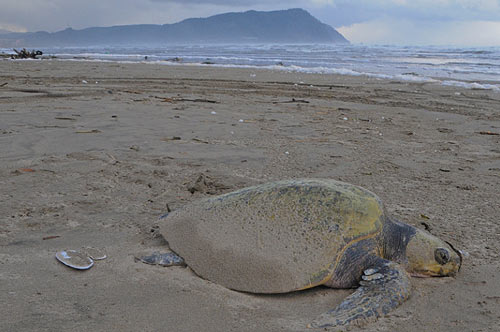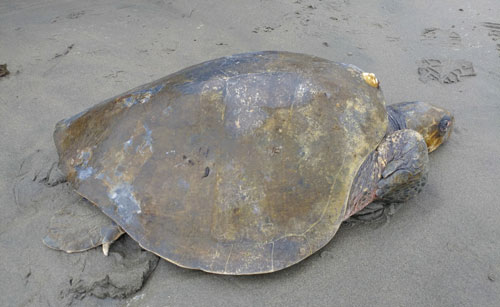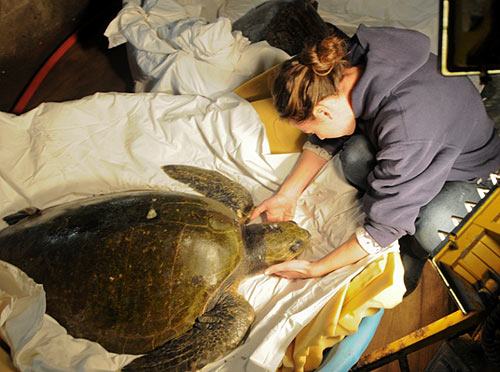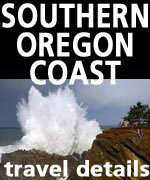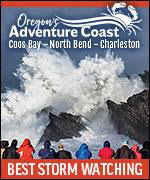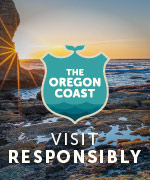Warning: Do Not Pick Up Sea Turtles on Oregon, Washington Coast
Published 11/05/2019 at 5:55 PM PDT
By Oregon Coast Beach Connection staff
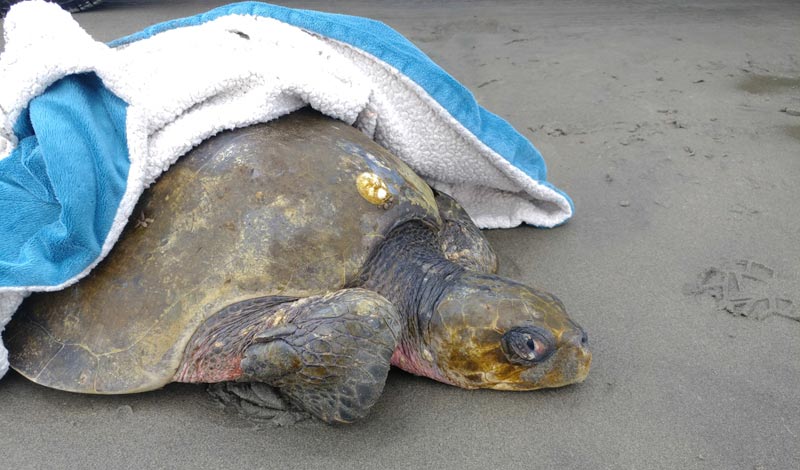
Includes exclusive listings; some specials in winter
In Cannon Beach:
Includes rentals not listed anywhere else
In Manzanita, Wheeler, Rockaway Beach:
Some specials for winter
In Pacific City, Oceanside:
Some specials for winter
In Lincoln City:
Some specials for winter
In Depoe Bay, Gleneden Beach:
Some specials for winter
In Newport:
Look for some specials
In Waldport
Some specials for winter
In Yachats, Florence
Some specials for winter
(Oregon Coast) – Just like the spring and summer with baby seals on the Oregon coast, this season is about stranded sea turtles and it has the same message: don’t touch them, call for authorities. Even on the Washington coast this is an issue. (Photos courtesy Seaside Aquarium).
Seaside Aquarium and Oregon Coast Aquarium staff deal with these creatures right about now every year, as October or November through the winter is when they start showing up on beaches. It is imperative you do not pick them up yourself, but rather report it to authorities such as state police or proper agencies, depending if you're on the Oregon or Washington coast.
Experts at both aquariums say picking them up not only harms the stranded creature but it is illegal. You could face actual charges.
You should not call 911 in these circumstances but rather the non-emergency numbers for state or local police. If you’re on the north Oregon coast or southern Washington coast, call Seaside Aquarium at 503-738-6211. For central coast and south coast, call 800-452-7888 (Oregon State Police Tipline), or NOAA 866-767-6114. For the southern the northern half of the Washington coast, call Washington State police or the west coast stranding tip line 1-866-767-6114 (also useful for Oregon and California).
For mammals like seals, whales or sea lions, call the Marine Mammal Stranding Network tip line 541-270-6830.
Last year was problematic for the Seaside Aquarium with stranded sea turtles. They had the first turtle of the season come in on November 26, but by the time they arrived there was an unpleasant surprise, according to Tiffany Boothe of the aquarium.
“However by the time we got to the animal someone had already picked it up,” she said. “Not only is this illegal but sea turtles that are cold-stunned may appear to be dead, but often times are not. A sea turtle's heartbeat can slow to one beat per minute when hypodermic.”
This incident was likely deadly to the turtle, with no help available to it at that point. However, most stranded sea turtles don’t survive after getting rescued from the beach. Their conditions are usually too advanced to help much.
What’s happening here is that strong, south and southwest winds push warmer currents farther north than they usually go. Sea turtles coming from California often continue following these, and then conditions suddenly change by the time they get to north Oregon waters and the turtles find themselves in sea temps too cold for their bodies.
Once they strand on these Pacific Northwest beaches, winds can bring their core temperatures down even further, endangering them more.
“They get hypothermic and end up on the beach,” Boothe said. “The quicker these turtles are found and taken off the beach the better their chances are. In the next few weeks people walking the beaches of the Oregon and Washington coast should keep a look out for these guys.”
When crew from either aquarium go into rescue mode with these sea turtles, the first step is a form of resuscitation. Warm fluids are pumped into the turtle to bring its core temperature up, and they’re surrounded with warm blankets. Not quite half of the rescued turtles survive this process – usually Olive Ridley turtles or Loggerheads are found in this region. If they do, they’re sent south to San Diego for further rehabilitation and then eventual release back into the wild. Oregon Coast Hotels in this area - Where to eat - Maps - Virtual Tours
Cannon Beach Lodging
Nehalem Bay Lodgings
Manzanita Hotels, Lodging
Three Capes Lodging
Pacific City Hotels, Lodging
Lincoln City Lodging
Depoe Bay Lodging
Newport Lodging
Waldport Lodging
Yachats Lodging
Oregon Coast Vacation Rentals
Oregon Coast Lodging Specials
More About Oregon Coast hotels, lodging.....
More About Oregon Coast Restaurants, Dining.....
LATEST Related Oregon Coast Articles
The building had also been robbed of pipes and copper by other thieves. True Crime, Astoria, Warrenton
Oregon Coast Crabbing Petition Denied, Rulemaking Process Remains on Course
A petition on procedural matters denied; no major changes yet. Whale
S. Oregon Coast Wind Warnings, Waves Up To 23 Feet
Gusts up to 65 and high waves for the weekend from Reedsport to Brookings. Weather
Newport Latest Oregon Coast Town to Ban Personal Fireworks Year-Round
City countcil voted this week; the pro fireworks display goes on as usual
Hazardous Seas Watch on N. Oregon Coast, S. Washington Coast, Waves Up To 15 Ft
Beaches will require caution but some good wave shows possible
Annual 'Maine' Event Returns to N. Oregon Coast's Seaside Aquarium
February 22 brings the fundraiser to Seaside. Seaside events
From Taking In Cool Oregon Coast Colors on the Patio to Seaside's Action
Review of Seaside's Seashore Inn on the Beach: spectacle with breakfast and your dog. Seaside hotel reviews
Oregon US Coast Guard Team Assists in Olympic National Forest Rescue
Helicopter team from Astoria rescued hikers on Washington's Mount Ellinor
Back to Oregon Coast
Contact Advertise on BeachConnection.net
All Content, unless otherwise attributed, copyright BeachConnection.net Unauthorized use or publication is not permitted








